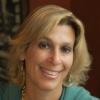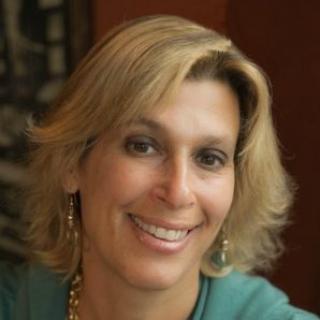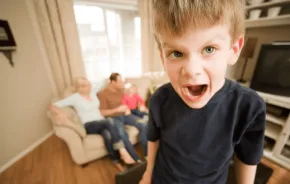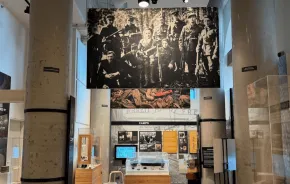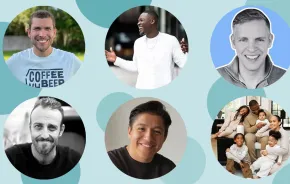.jpg)
I first encountered Jennifer Niesslein in 2004. I had written a sad essay about a friend of mine — a 40-year-old woman who had recently died of melanoma, leaving behind a husband, an 8-year-old daughter and a 9-year-old son. In my essay I grappled with how I would teach my children about death.
Niesslein was the editor who would publish my story, one of the first of my pieces to appear in print. As co-founding editor of Brain, Child magazine, Niesslein and her doppelgänger Stephanie Wilkinson were at the forefront of a new phenomenon — providing a venue for mothers to share their experiences and ideas.
In 2004, motherhood could be a lonely endeavor because “sharing” was still rare. There were few or no bloggers, and digital media was in its infancy. So when Brain, Child, founded in 1999, and still the foremost literary magazine dedicated to motherhood, arrived on the newsstand or in the mailbox, it was like sneaking cigarettes. You could imagine mothers around the country furtively taking their copies of the magazine and disappearing.
When the news broke in 2012 that Brain, Child would be no more, you could hear the collective outcry. When word arrived some months later that it was to be resurrected, thanks to new publisher Marcelle Soviero, you could hear a collective sigh of relief.
But what of Niesslein and Wilkinson, the women who reminded us that you could have a child and still want to feed your brain? Wilkinson is now the co-owner of the first farm-to-table restaurant in Lexington, VA.
And Niesslein, who never stopped writing, has a new project — a subscription-based literary website called Full Grown People, which she describes as featuring essays about those moments in adult life when you wonder, what's next?
I caught up with Niesslein via email, but it was as if she were in the room with me.
Here's what she had to say:
In your Brain, Child “swan song,” you wrote that you worried your name would always be synonymous with motherhood, despite the fact that you’ve written other things, including a book, that have nothing to do with the subject. What do you hope to be remembered for now?
Niesslein: Good question! I don’t know. I’m still in the thick of life, but I think that although I’m a solid writer and an even better editor — thanks, Stephanie Wilkinson, for teaching me! — my real talent lies in bringing together writers, artists and readers to making publications that are a community. I’m perfectly content being kind of a literary cult figure. I just want the cult to be a little bigger. To paraphrase Antonia Malchik, one of FGP’s contributors, Full Grown People isn’t offering Kool-Aid — it’s richer, more of a complex wine.
Your son is 15. What was it like editing a parenting magazine while raising him? Did it make you a more anxious parent or a more settled one?
Niesslein: Co-editing the magazine most definitely made me a more empathetic parent. I was never one to subscribe to a particular parenting philosophy, but reading the essays that Steph and I ran — and even those that we didn’t run — introduced me to the whys and not the hows of parenting choices. It really underscored my belief — initially sprung from having a mother and sisters who each found their own, different ways to parent — that you’re the expert of your own family. My husband and I knew our son best and used that knowledge to raise him.
You say that Full Grown People is for people, including parents, who have grown beyond firsts — the first kiss, the first job, the first child — and are trying to figure out who they are. Is this the first literary magazine devoted to the midlife crisis?
Niesslein: I wouldn’t put it that way because, really, how do you define midlife? The thing is, I was looking at what’s available to read online, and there’s a lot of writing targeted to people in their twenties. Some of it is terrific, but I’m just not there anymore.
I cringe at all the “[Number] is the new [number]!” malarkey. Age is a lot more complicated than that, and it has to do with where you are in your life. At 41, I’m definitely one of the youngest mothers in my son’s classes, but at the same time, I’m one year younger than my mother was when she became a grandmother. FGP is really about transitions, no matter what age you are.
At the same time, I think of Full Grown People as the natural evolution of my work at Brain, Child.
Among the essays you’ve published in the past few months have been several written by men, including a powerful essay about a troubled marriage by a man from one of your writing classes. Are you making a concerted effort to provide a venue where men can share their experiences?
Niesslein: Not especially, although men are always welcome to send in their work! I just happen to know a lot of women writers, and, although I’ve published quite a few essays that came over the transom, I’ve solicited the writers I’ve worked with and who bring the quality. Once I get out of crazy startup mode, I know I need to work on expanding the diversity of writers, in terms of everything.
We live in an era of hyper-involved parenting, in which it’s easy to lose oneself in the busyness of raising our kids. What advice do you have for parents to keep their brains active while raising their children?
Niesslein: You know, I think you’ll seek out the intellectually and emotionally engaging stuff when you need it. I just ran this terrific essay by Meredith Fein Lichtenberg about the nest she built for herself and her kiddos and the comfort she found in being restricted by the rhythm of their days together. I, on the other hand, was terrified of disappearing once I became a mother — which is one of the reasons I co-founded B.C. I wrote about this in my intro to the essay — I write introductions, but the only people who get them are the ones who sign up for notifications. I imagine everyone is different.
One could argue that you are in the middle of a creating a literary magazine trilogy. Do you foresee a possible “third act,” in which you publish essays about aging? How about Brain, Grandchild? People Past Their Prime?
Niesslein: Ha ha! I recently saw a picture of Margaret Atwood and Alice Munro together — these brilliant women with white hair. My deepest wish is that, like them, no one will be able to tell when I’m past my prime, including me.
 Alison Krupnick is ParentMap's education editor and author of the book Ruminations from the Minivan: Musings from a World Grown Large, Then Small and the blog Slice of Mid-Life.
Alison Krupnick is ParentMap's education editor and author of the book Ruminations from the Minivan: Musings from a World Grown Large, Then Small and the blog Slice of Mid-Life.



